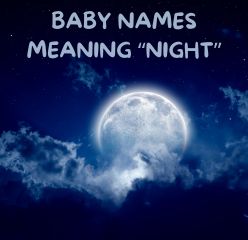In the celestial sphere above, amid the glittering stars, a tribute to amazing women awaits! Let’s get into the captivating tales, historical importance and modern initiatives surrounding these celestial monikers. This exploration of female star names makes you appreciate the enduring legacy of women in the cosmos.
Throughout history, the fascination with stars has been driven by humanity’s innate curiosity and the stars’ role in navigation, timekeeping and cultural narratives, inspiring wonder and shaping our understanding of the cosmos.
RELATED: Fantasy-inspired names for baby girls
5 Reasons to choose a name meaning Star for a girl

- Symbolizes uniqueness and brilliance, reflecting the child as a shining light in the parents’ lives.
- Female star names evoke the idea of guidance and inspiration, suggesting a bright future and a potential role as a guiding force for others.
- Carries a sense of timeless beauty and elegance, making it an attractive choice for parents who appreciate celestial themes.
- Holds both personal and universal significance, offering a name with depth and symbolism.
- Female star names show the parents’ desire to give their daughter a name with celestial charm and positive connotations.
The role of women in astronomy
The role of women in astronomy has changed from being largely marginalized and overlooked to becoming increasingly prominent and influential. Throughout history, women faced societal barriers that limited their access to formal education and scientific institutions, yet many pioneering women defied these constraints to make significant contributions to the field.
From the groundbreaking work of astronomers like Caroline Herschel and Maria Mitchell, who made groundbreaking discoveries and charted new celestial territories, to modern-day astrophysicists and researchers, women have consistently demonstrated their profound expertise and passion for exploring the cosmos.
Today, women continue to play vital roles in various aspects of astronomy, breaking barriers and inspiring future generations to reach for the stars.
6 Pioneering female astronomers

These women not only advanced our understanding of the cosmos but also challenged societal norms, inspiring future generations of female astronomers to reach for the stars:
- Caroline Herschel (1750-1848). A trailblazing astronomer, she discovered several comets and became the first woman to receive a salary for her scientific work.
- Maria Mitchell (1818-1889). Known for her discovery of a comet and her role as the first female professional astronomer in the United States. She also advocated for women’s education in science.
- Annie Jump Cannon (1863-1941). Renowned for her work in stellar classification, Cannon developed the Harvard Classification Scheme and cataloged hundreds of thousands of stars.
- Henrietta Swan Leavitt (1868-1921). Her groundbreaking work on variable stars, particularly Cepheid variables, led to the development of the cosmic distance ladder and our understanding of the size of the universe.
- Vera Rubin (1928-2016). A pioneering astrophysicist, Rubin’s work on galaxy rotation curves provided strong evidence for the existence of dark matter.
- Jocelyn Bell Burnell (born 1943). Discovered pulsars during her graduate research, a breakthrough that earned her advisor a Nobel Prize but sparked discussions about gender bias in science.
These women make it all the more evident why female star names are so popular.
Naming Stars After Women
The International Star Registry and star dedications
The International Star Registry (ISR) is a private company that provides individuals with the opportunity to symbolically name stars in the night sky. While the ISR’s star naming service has gained popularity, it’s important to note that these dedications are not officially recognized by the scientific community or astronomical organizations.
Here’s how the process typically works:
- Selection of a star. Customers choose a star from the ISR’s catalog, often based on its coordinates in the night sky.
- Personalization. They then personalize the star’s name, often dedicating it to a loved one or marking a special occasion.
- Certificate and materials. In return for their purchase, customers receive a decorative certificate and star charts showing the location of the named star.
The service can be a sentimental and symbolic gesture.The star names given through the ISR are not officially recognized by the International Astronomical Union (IAU), the organization responsible for naming celestial objects. The IAU has its own rigorous naming conventions and processes for celestial bodies.
Notable stars named after women

1. Stella Polaris (Polaris) – The North Star
2. Vega – The brightest star in Lyra constellation
3. Bellatrix – A star in the Orion constellation
8 Names of stars in the sky and their meanings

- Polaris (Alpha Ursae Minoris). Also known as the North Star, Polaris is crucial for navigation because it remains nearly stationary in the northern sky. Its name comes from the Latin word “stella polaris,” meaning “Pole Star.”
- Vega (Alpha Lyrae). Vega is one of the brightest stars in the night sky and is part of the constellation Lyra. Its name is derived from the Arabic word “waqi,” which means “falling” or “landing,” possibly referring to its position as it appears to “fall” into the western horizon.
- Betelgeuse (Alpha Orionis). Betelgeuse is a red supergiant star in the constellation Orion. Its name is thought to originate from the Arabic phrase “yad al-jawzā,” meaning “the hand of Al-Jauza,” which refers to a figure in Arabian folklore.
- Sirius (Alpha Canis Majoris). Sirius is the brightest star in the night sky and is often referred to as the “Dog Star” because it’s located in the constellation Canis Major, which represents a dog. Its name comes from the Greek word “seirios,” meaning “glowing” or “scorching.”
- Altair (Alpha Aquilae). Altair is the brightest star in the constellation Aquila and one of the stars that form the Summer Triangle. Its name is derived from the Arabic word “al-nasr al-ta’ir,” which means “the flying eagle.”
- Aldebaran (Alpha Tauri). Aldebaran is an orange giant star in the constellation Taurus. Its name comes from the Arabic phrase “al-dabaran,” which means “the follower,” as it appears to follow the Pleiades star cluster across the sky.
- Regulus (Alpha Leonis). Regulus is the brightest star in the constellation Leo and is often associated with the heart of the lion. Its name is derived from the Latin word “regulus,” meaning “little king” or “prince.”
- Arcturus (Alpha Boötis). Arcturus is the brightest star in the northern celestial hemisphere and is located in the constellation Boötes. Its name is believed to come from the Greek word “arktouros,” meaning “bear guardian,” as it follows the constellation Ursa Major, the Great Bear.
70 female star names

- Aeliana – Latin for “sun” and “moon”
- Aelanah – Variant of Aeliana
- Aelina – Variant of Aeliana
- Akari – Japanese for “light” or “brightness”
- Akasma – Turkish for “star”
- Ankaa – The brightest star in the Phoenix constellation
- Astraea – Greek for “star maiden”
- Astra – Latin for “star”
- Astraiah – Variant of Astraea, meaning “starry one”
- Astralyn – Combines Astrid and Lynn, meaning “star” and “lake”
- Astralis – Combines Astra and Alice, meaning “star” and “noble”
- Astrida – Latvian for “star”
- Astridelle – Blend of Astrid and Estelle
- Astraith – Unique variation of Astrid
- Astrina – Combination of Astra and Tina, meaning “star” and “river”
- Astron – Greek for “star”
- Bellatrix – “female warrior”
- Belinda – One of Uranus’s moons
- Bianca – One of Uranus’s moons
- Callista – one of the moons of Jupiter
- Cordelia – one of the moons of Uranus
- Danica – Slavic for “morning star”
- Danique – Variation of Danica, meaning “morning star”
- Danika – Slavic for “morning star”
- Danilyn – Combination of Dani and Lynn, meaning “morning star” and “lake”
- Danishta – Sanskrit for “star”
- Elara – A moon of Jupiter
- Elazara – Variation of Elara
- Estelada – Spanish for “starry”
- Estelita – Diminutive of Estelle, meaning “star”
- Estella – Spanish for “star”
- Estelle – French for “star”
- Esther – Persian for “star”
- Esthera – Variation of Esther, meaning “star”
- Hikari – Japanese for “light” or “radiance”
- Hikaru – Japanese for “light” or “radiance”
- Hoshiko – Japanese for “star child”
- Hoshimi – Japanese for “star beauty”
- Ishtar – Mesopotamian goddess associated with Venus, the “morning star”
- Iriana – Combination of Irene and Ariana, meaning “peace” and “silver star”
- Nyelle – Variation of Nyota
- Nyota – Swahili for “star”
- Namarra – Elvish for “starlight”
- Najmat – Arabic for “star”
- Nairi – Armenian for “star”
- Nuit – Egyptian goddess of the sky, often associated with stars
- Rukmini – Sanskrit for “adorned with stars”
- Seraphina – Hebrew for “burning one” often associated with stars
- Selenia – Greek for “moon and stars”
- Seren – Welsh for “star”
- Serenita – Spanish for “little star”
- Shterna – Yiddish for “star”
- Suhaila – Arabic for “star”
- Suhaili – Variation of Suhaila
- Svetlana – Russian for “light” or “bright”
- Sitara – Arabic for “star”
- Starla – A modern English name meaning “star”
- Stella – Latin for “star”
- Tara – Sanskrit for “star”
- Taralyn – Combines Tara and Lynn, meaning “star” and “lake”
- Tarin – Variant of Tara, meaning “star”
- Tala – Filipino for “star”
- Tindra – Swedish for “twinkle”
- Vega – A bright star in the constellation Lyra
- Vespera – Latin for “evening star”
- Zeta – Greek letter used to designate stars in a constellation
- Zvezda – Russian for “star”
- Zvjezdanka – Bulgarian for “little star”
- Zora – Slavic for “dawn” and “star”
- Zviad – Georgian for “star”
27 Other celestial names for girls

- Calypso – Inspired by a moon of Saturn and a Greek nymph’s name
- Cassiopeia – A constellation and the name of a queen in Greek mythology
- Celeste – Derived from the Latin word for “heavenly”
- Ciel – French for “sky”
- Elara – Named after one of Jupiter’s moons
- Galadriel – A character from J.R.R. Tolkien’s Middle-earth, meaning “maiden crowned with a radiant garland”
- Helia – A variation of “Helios,” the Greek god of the sun.
- Ishtar – The Babylonian goddess of love and war, associated with the planet Venus
- Juno – The Roman goddess of marriage and the well-being of women
- Kalani – Hawaiian for “the heavens” or “royalty”
- Lyra – A constellation and a musical instrument
- Maia – Named after one of the Pleiades stars and a Greek mythological figure
- Nova – A term used to describe a star that suddenly becomes brighter
- Nyx – Greek goddess of the night
- Ophelia – A moon of Uranus and a character in Shakespeare’s “Hamlet”
- Pandora – A moon of Saturn and the name of the first woman in Greek mythology
- Phoebe – A moon of Saturn and a name from Greek mythology
- Rhea – A moon of Saturn and a Titaness in Greek mythology
- Selene – Greek goddess of the moon
- Sola – Latin for “sun”
- Soleil – French for “sun”
- Solene – A French name related to the sun
- Solstice – Refers to the points in the year when the sun reaches its highest or lowest point in the sky
- Thalassa – Greek for “sea,” also the name of a moon of Neptune
- Titan – A moon of Saturn and a name suggesting strength
- Zephyr – Greek god of the west wind
- Zora – Slavic for “dawn”
To conclude, the world of female star names is a constellation of enchanting choices, but like the stars, we all have our unique brilliance. As you go through these names, don’t forget that you too are a star, shining your own light upon the world.






1 Comment
All such cute names! I love Stella.